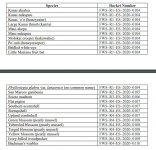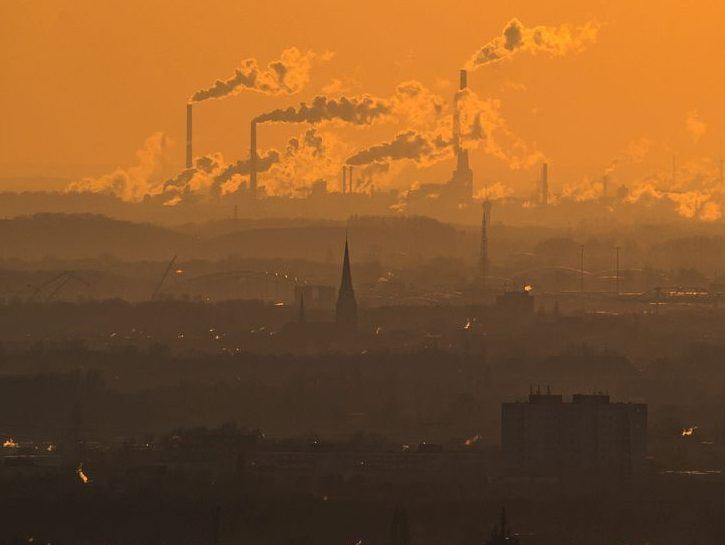GOLDSTEIN: Emissions soaring as UN climate conference approaches
Author of the article:Lorrie Goldstein
Publishing date:Oct 02, 2021 • 10 hours ago • 3 minute read • 43 Comments
Steam and exhaust rise from different companies on a cold winter day on January 6, 2017 in Oberhausen, Germany.
Steam and exhaust rise from different companies on a cold winter day on January 6, 2017 in Oberhausen, Germany. PHOTO BY LUKAS SCHULZE /Getty Images
Article content
While world leaders, including Prime Minister Justin Trudeau, gear up for yet another major United Nations meeting on climate change in Glasgow, Scotland in November, global greenhouse gas emissions are skyrocketing.
Advertisement
STORY CONTINUES BELOW
Article content
That’s because as global economies begin to recover from the world-wide recession caused by COVID-19, the use of coal, oil and natural gas to produce energy is rapidly increasing.
This is the reality, and the dilemma, the UN has never confronted.
That is, the only things that have ever dramatically and quickly slowed rising global emissions are global recessions — and then only temporarily — not UN agreements like the Kyoto and Paris climate accords.
Global emissions dropped dramatically in the first half of 2020, as COVID-19 spread around the world, leading to a global recession that shut down or curtailed many industries and thus the need for fossil fuel energy to power them.
But emissions began rising again in the latter half of 2020.
Advertisement
STORY CONTINUES BELOW
Article content
By the end of this year they are expected to return to almost their pre-pandemic levels and keep rising.
MORE ON THIS TOPIC
In this April 3, 2014 file photo giant machines dig for brown coal at the open-cast mining Garzweiler in front of a power plant near the city of Grevenbroich in western Germany. (AP Photo/Martin Meissner, File)
GOLDSTEIN: Ignore the climate porn, there are reasons for hope
Pumpjacks spin on a field on Tuesday June 9, 2015 west of Sexsmith, Alta.
GOLDSTEIN: Canada needs smart energy policies, not dumb political promises
A truck drives along wind turbines on a mountain road near the town of Karystos on the island of Evia, Greece, April 16, 2021.
GOLDSTEIN: Better to do nothing than try to reach UN climate target, says report
Global emissions dropped by about 5.6% at the height of the pandemic and will increase by almost 5% by the end of this year.
As the United Nations Environment Program put it last month in preparation for the Glasgow climate summit:
“COVID-19 did not slow the relentless advance of climate change. There is no sign that we are growing back greener, as carbon dioxide emissions are rapidly recovering after a temporary blip, due to the economic slowdown and are nowhere close to reduction targets. Greenhouse gas concentrations in the atmosphere continue at record levels, committing the planet to dangerous future warming.”
Advertisement
STORY CONTINUES BELOW
Article content
“Throughout the pandemic we have heard that we must build back better to set humanity on a more sustainable path and to avoid the worst impacts of climate change on society and economies” said World Meteorological Organization Secretary-General Petteri Taalas. “So far in 2021 we are not going in the right direction.”
Environment Minister Jonathan Wilkinson recently said the Trudeau government will soon unveil a detailed plan to meet its commitment to the UN to reduce Canada’s emissions to 40-45% below 2005 levels by 2030, on the way to net zero by 2050.
Except for 2020 because of the pandemic, Canada’s emissions have increased slightly since the Trudeau Liberals took power in 2015.
That said, Canada should be in for some praise in Glasgow, given Trudeau’s carbon tax of $40 per tonne of emissions this year, rising to $170 per tonne in 2030, along with other measures that will increase the cost of living for Canadians.
Advertisement
STORY CONTINUES BELOW
Article content
The problem is while emissions are flattening or falling in the developed world, they are rising in the developing world.
In 2019, China for the first time generated more emissions than the entire developed world combined.
China consumes more coal, the most carbon intensive fossil fuel, than the rest of the world combined.
While per capita emissions are low, China is the world’s largest national emitter of greenhouse gases, responsible for 27% of global emissions. Canada contributes 1.5%.
So yes, now that Canada has a significant carbon tax, Trudeau is in a position to lecture other countries about lowering their emissions linked to human-induced climate change.
The problem is the developing world, led by China, will do whatever it wants to do on this file, as China has on so many others.
lgoldstein@postmedia.com
As world leaders gear up for yet another major UN meeting on climate change in November, global greenhouse gas emissions are skyrocketing.

torontosun.com



